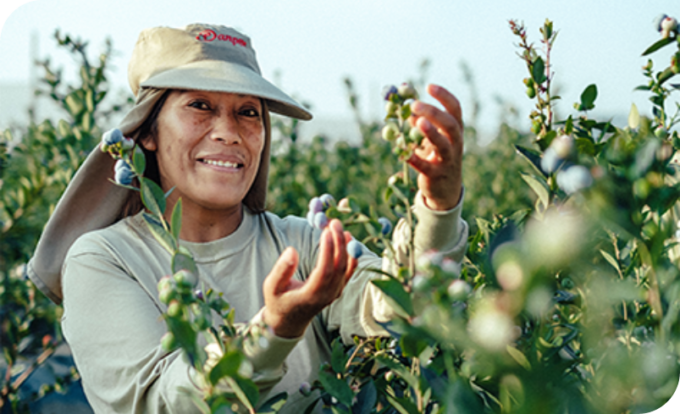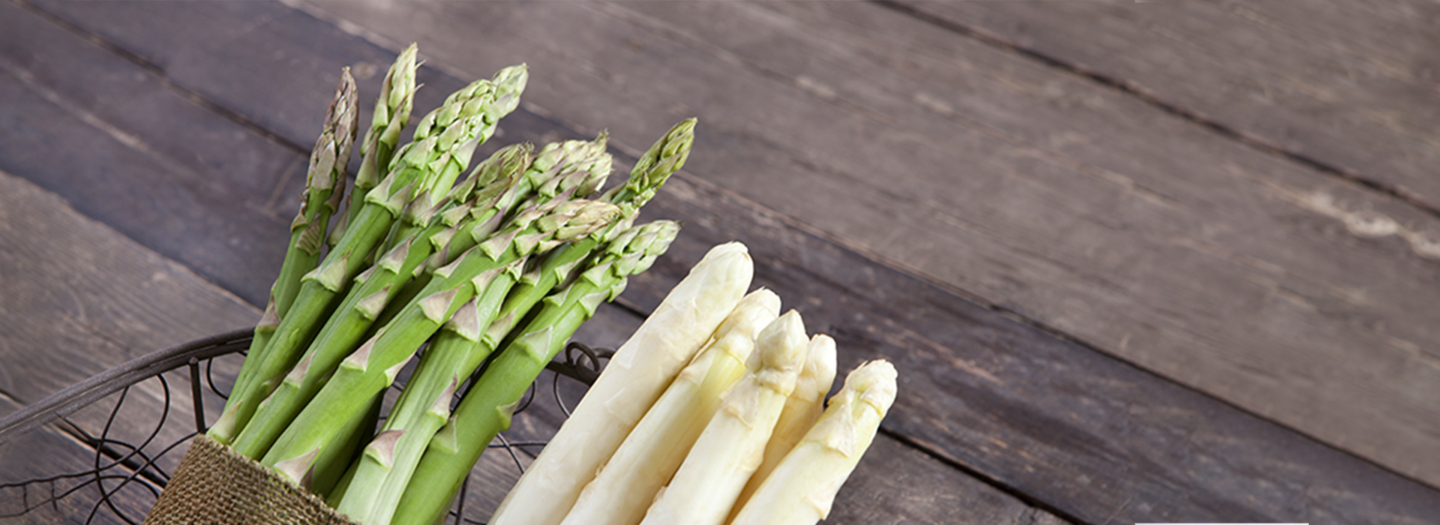
Investing in employee retraining amid the AI revolution
What is ‘quiet hiring? Organizations that invest in reskilling and upskilling can fortify their workforces for the coming seismic changes wrought by technology, globalization, and markets. ...

Published 18 February 2022 in Human Resources • 6 min read
Nestled amid the high sand dunes that border the Peruvian coast are rows of fields growing blueberries, avocados and asparagus destined for supermarkets in the US, Europe and Asia. Peru exported an estimated $7.8 billion worth of agricultural products in 2020, up from $645 million in 2000 and ranks in the top five fruit and vegetable exporting countries worldwide.
The transformation of this hostile landscape into fertile farmland comes down to technology and entrepreneurial spirt. While engineering works brought in water from the Rio Santa high up in the Andean mountains and fed it into channels along the coast, it is the drive and vision of women like Rosario Bazán (pictured above), co-founder and CEO of Danper, who have nurtured the workforce that tends the fields growing red piquillo peppers and artichokes.
Founded in 1994, Danper has grown into one of Peru’s leading agribusinesses. It now employs 14,000 people – half of whom are women – and indirectly supports a further 40,000 jobs.
The company’s business model is based on shared value, prioritizing its people alongside profit. It provides an example of how investing in the health and education of employees can improve productivity and add value.
“Creating shared value is not philanthropy, neither is it corporate social responsibility,” says Bazán, who will be one of the keynote speakers at OWP liVe in June.
“It connects the economic efficiency and profitability with the social progress of our workers and communities. To do both at the same time by putting social impact at the core of the business, that is the difference. Many companies may say, ‘Okay first I do profit and if there is some is left over then I do CSR.’ That is not the point. The point of shared value is from day zero I must connect both issues, I must empower and care for the progress of the people.”

The boom in Peru’s agriculture industry over the past three decades has helped transform communities blighted by unemployment and violence. The number of Peruvians living in poverty fell from 54% in 1990 to 20% in 2018, before rising again to around 30% due to the impact of the COVID-19 pandemic.
That leaves around 10 million people without access to basic services such as electricity and healthcare.
Bazán realized in the 1990s that if she wanted to increase the productivity of her company, she would have to make sure her workers’ basic needs were met. This prompted an idea to build free health centers and offer education and training – a notion that baffled many of her peers in the business community at the time.
“If we contribute to building a healthy community with healthy workers, then the productivity of our organization can be sustained,” she said.
Thanks to these efforts, Danper has been awarded numerous accolades for its impact on the environment and communities and was the first company in Peru to obtain an EDGE certificate which measures where organizations stand in terms of representation, pay equity and inclusion.
As well as investing in its people, Danper also works to improve the quality of the soil. The company now manages around 10,000 hectares of land – 4,000 of which it owns and the rest it leases from small farmers. For every hectare of blueberries it grows, it invests $75,000.
Starting off growing canned asparagus, the company has branched out into products not native to Peru such as avocados and artichokes and has launched a line of ready-to-eat products including pestos, sauces and grilled peppers. In 2019, it notched sales of more than $200 million helped by strong growth in its sustainable products.
Bazán sees changing global appetites towards healthier products full of fiber as fueling demand for Peruvian fruit and vegetables. Consumers are also more conscious of the origins of the food on their plates and how it is cultivated.

“Starting off growing canned asparagus, the company has branched out into products not native to Peru such as avocados and artichokes. In 2019, it notched sales of more than $200 million helped by strong growth in its sustainable products. ”
But operating in Peru is not without its challenges. Climate change is shrinking the glaciers in the Andean mountains, diminishing the amount of water available for agriculture. Corruption and fraud continue to negatively impact the investment climate. A further problem is the prevalence if the international drug smuggling mafia.
With Peru now one of the largest producers of cocaine, Bazán discovered the containers shipping its produce to Europe sometimes held another type of cargo.
“The mafia break the security and put the package in. When it arrives in Belgium or France they open the container and take out the package. This happens a lot until your customer calls you and says they have discovered a big package of bricks of cocaine,” she said.
Although companies are no longer liable for their containers once they pass customs, Bazán recalled how she called her lawyers, police and even the minister of international commerce to see how she could try to stop her customers receiving a serving of cocaine along with their avocados.
This tenacity is typical for Bazán. Upon graduating with a degree in industrial engineering, she managed to secure a job despite widespread unemployment in Peru. She later built up a pineapple processing business, selling to global clients until the venture succumbed to a massive bout of hyperinflation in the late 1980s. By continuing to honor shipments, despite operating at a significant loss, Bazán and her husband impressed their Dutch partners. This experience helped them start a new business with their Danish partners which became Danper.
Bazan’s reputation as a responsible leader who can bring people together saw her elected as the President of the CADE executive Conference 2021, a forum where representatives from government, industry and civil society debate relevant issues for Peru’s inclusive development.
“Companies all around the world, not only in Peru, are seen as the bad part of the story. They see us as the ones that are doing business at the cost of not treating the people well,” said Bazán.
While Danper has set a positive example of what can be achieved when firms take care of their workers, many of its employees still lack basic public services, such as electricity, when they go home. A failure to improve these circumstances risks stoking unrest.
“If we do not work on the social peace, we will not have sustainable development,” she said. “There is a big challenge for us to work together with the government so that they can provide the basic services for our workers.”
With the global population expected to swell to nine billion people by 2050, pushing up demand for food by 60%, according to estimates compiled by the Food and Agriculture Organization, there is a huge opportunity for countries like Peru to increase its exports of high-quality fruit and vegetables.
The question is whether Peru will be able to share the spoils of this economic growth among its people? Danper’s Bazán hopes to provide an example of how this can be done. “We build our nation through our company which is a real vehicle for development.”

Co-founder and CEO of Danper
Rosario Bazán is co-founder and CEO of Danper, a leading agribusiness in Peru. Rosario holds a BA in Engineering from the National University of Trujillo (1986); MBA, Rochester Institute of Technology, New York (2000); MBA, INCAE and Universidad Adolfo Ibáñez de Chile (2008).

17 April 2024 • by James Caan in Human Resources
What is ‘quiet hiring? Organizations that invest in reskilling and upskilling can fortify their workforces for the coming seismic changes wrought by technology, globalization, and markets. ...

29 February 2024 • by Zhike Lei, Patrick Reinmoeller in Human Resources
For research-based, actionable advice on team talent management, look to these professors’ complementary insights. ...

21 February 2024 • by Knut Haanaes in Human Resources
Knut Haanaes, Professor of Strategy and Lundin Sustainability Chair at IMD Business School, explains why CHROs will play a key role in their organizations’ progress towards net zero. ...

9 February 2024 • by Jo Yarker in Human Resources
Leaders in organizations face unprecedented expectations when caring for the mental well-being of their teams. Building sustainable solutions involves an all-hands-on-deck effort throughout the organization which can pay dividends in productivity and...
Explore first person business intelligence from top minds curated for a global executive audience